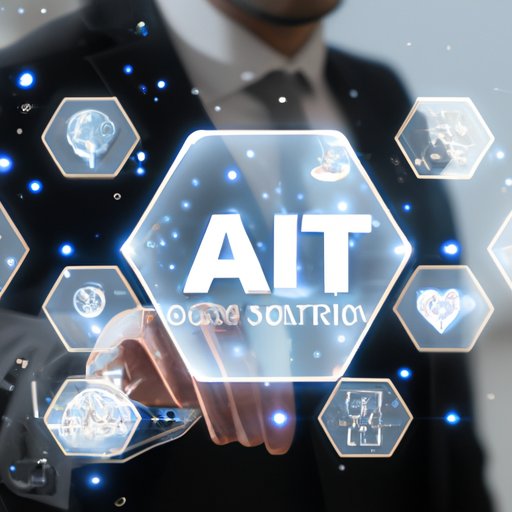Introduction
Artificial intelligence (AI) has become an increasingly prevalent part of our daily lives. This technology is used in a variety of ways, from improving customer experiences to automating tasks to aiding in medical diagnoses. It’s no surprise then that AI is considered one of the most important emerging technologies today.
But what exactly is AI and how is it being used? In this article, we’ll explore the various benefits and uses of AI in everyday life, from its role in transforming businesses to its potential for social good. We’ll also discuss the ethical implications of artificial intelligence and its potential for long-term positive impact.
Exploring the Benefits and Uses of AI in Everyday Life
How AI Is Transforming Businesses
According to a recent survey by Oracle and Future Workplace, 96% of executives believe that AI will revolutionize their industry over the next five years. The same survey found that more than half of respondents said they are already using AI in some capacity.
One of the main ways AI is being used in business is to streamline processes. For example, AI can be used to automate mundane tasks such as data entry or customer service inquiries. This frees up employees to focus on more complex tasks and allows companies to be more productive and efficient.
In addition, AI can be used to enhance customer experience. AI-powered chatbots, for instance, can provide personalized customer service 24/7. They can answer questions, provide product recommendations, and even process orders. According to a study by Accenture, 78% of customers prefer to use chatbots for customer service.
Finally, AI can be used to automate tasks. Machine learning algorithms, for example, can take over time-consuming tasks such as analyzing large amounts of data or recognizing patterns in customer behavior. This can help save time and money while increasing accuracy and efficiency.
AI and Its Impact on Health Care
AI is also having a major impact on the healthcare industry. AI-powered software can be used to increase efficiency and accuracy in diagnoses. For instance, AI-powered imaging software can detect tumors and other abnormalities with greater accuracy than a human doctor.
AI can also be used to improve patient care. AI-powered virtual assistants can remind patients to take their medications or provide information about their condition. In addition, AI-powered wearables can monitor vital signs and alert doctors if there is a problem.
AI and Its Role in Education
AI is also playing an increasingly important role in education. AI-powered software can be used to enhance learning experiences by providing students with personalized instruction. AI can also create virtual tutors who can provide feedback and guidance in real time.
In addition, AI can be used to develop adaptive learning systems that can adjust teaching methods based on a student’s individual needs. This can help make learning more effective and engaging for students of all ages.
The Potential of AI for Social Good
AI also has the potential to have a positive impact on society. AI-powered tools can be used to improve access to information, facilitate sustainable development, and support humanitarian efforts. For instance, AI can be used to identify areas of poverty or predict natural disasters to allow for faster response times.
In addition, AI can be used to help combat climate change. AI-powered software can analyze data to identify areas where emissions can be reduced or renewable energy sources can be utilized.
Ethical Implications of Artificial Intelligence
While AI has the potential to have a positive impact on society, there are also ethical implications to consider. For instance, there are concerns around privacy when it comes to the collection and use of data. There is also the risk of unintended bias, as algorithms may inadvertently reflect existing biases in society.
Finally, there is the issue of autonomy and control. AI-powered systems are capable of making decisions independently, which raises questions about who should be held accountable for those decisions.
Conclusion
AI is a powerful tool that has the potential to revolutionize industries and transform our daily lives. From streamlining processes to enhancing customer experiences to improving patient care, AI has numerous benefits and uses in everyday life.
At the same time, it’s important to consider the ethical implications of artificial intelligence and ensure that it is used responsibly. With proper oversight and regulation, AI has the potential to have a long-term positive impact on society.
(Note: Is this article not meeting your expectations? Do you have knowledge or insights to share? Unlock new opportunities and expand your reach by joining our authors team. Click Registration to join us and share your expertise with our readers.)
